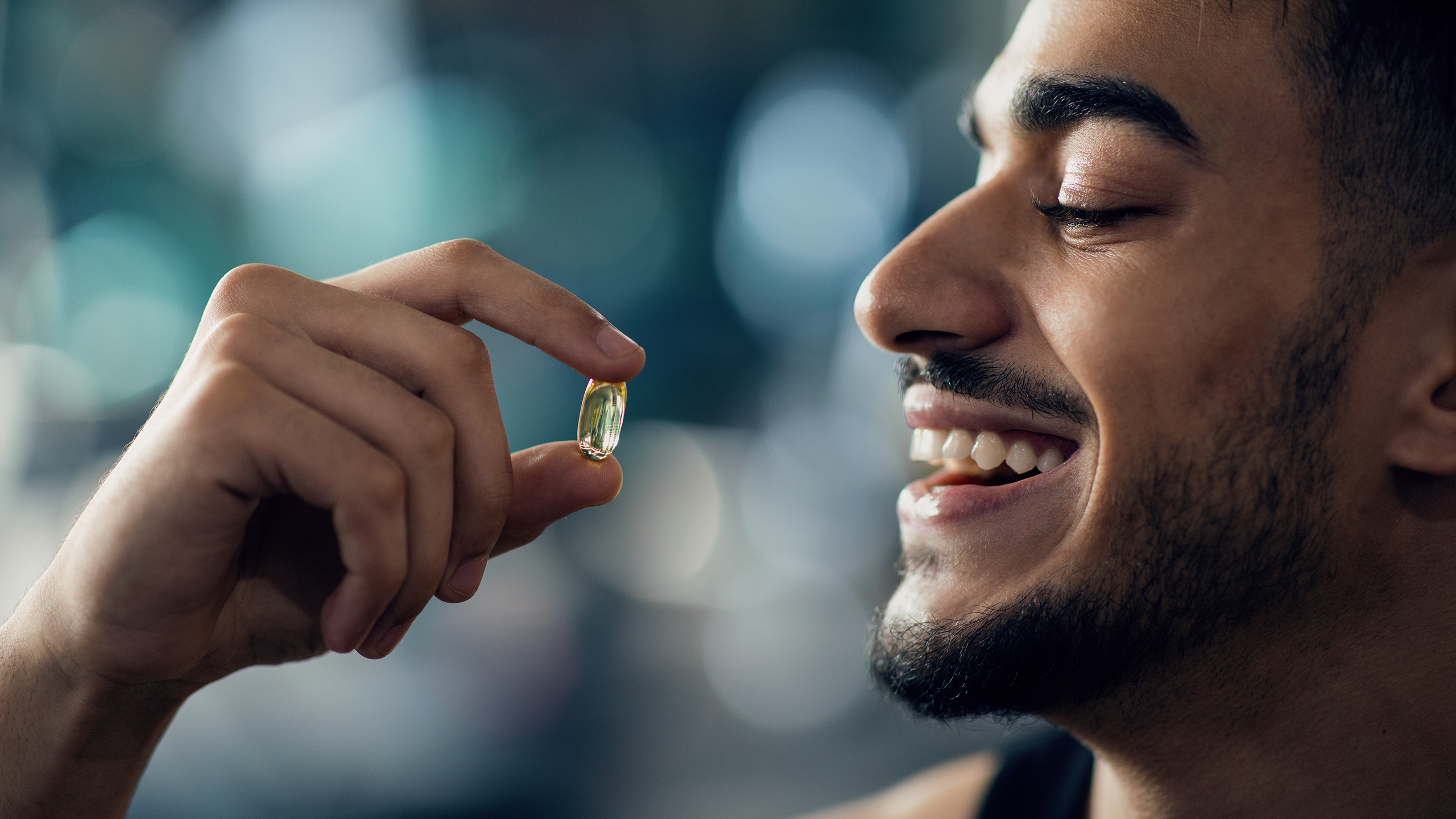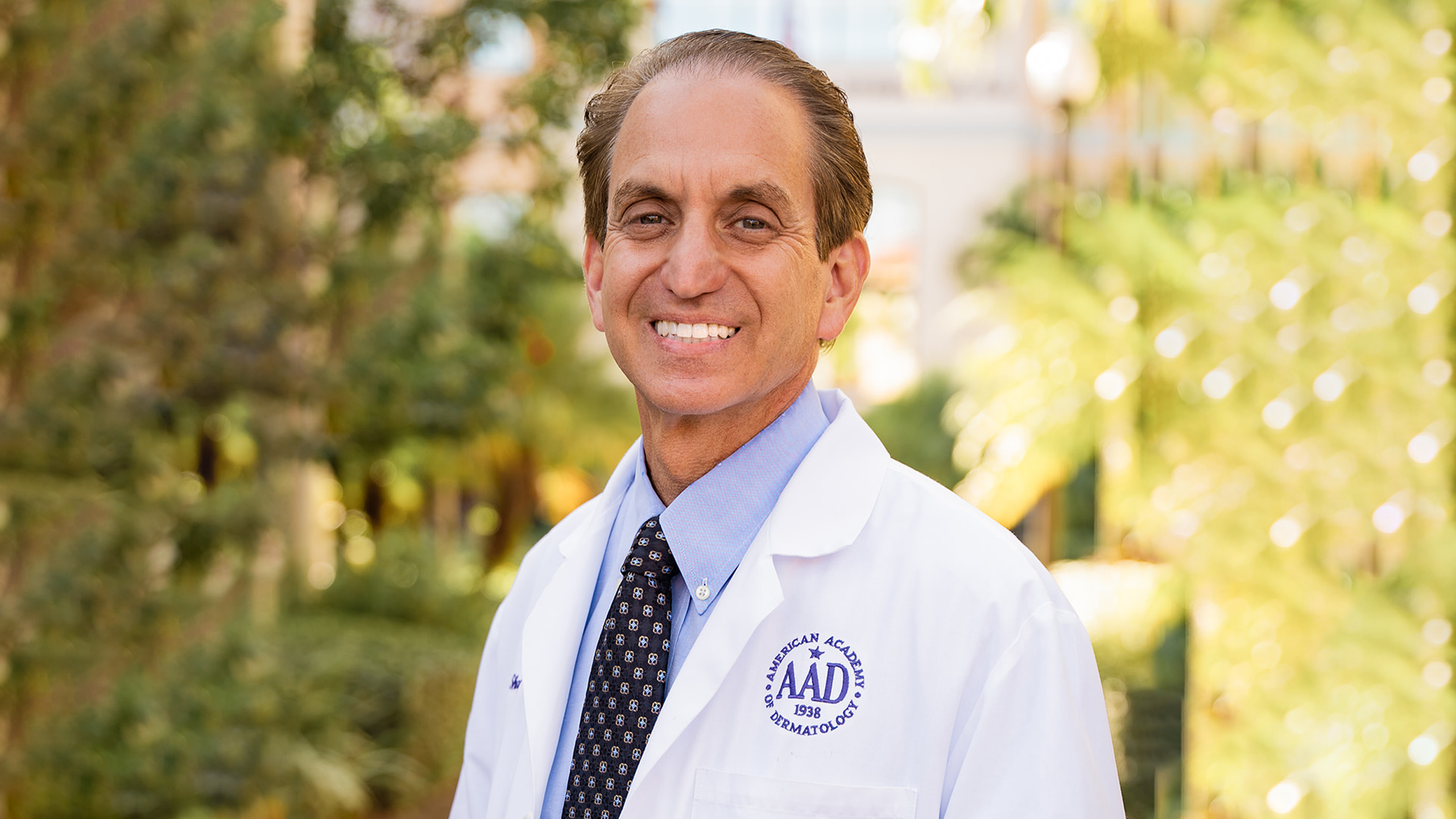Featured
Which Vitamin Deficiency Causes Hair Loss?
- Deficiencies in vitamins and minerals such as iron, zinc, vitamin C, folic acid, and biotin can all contribute to hair loss.
- Nutritional deficiencies may be corrected by using vitamin supplements or making dietary changes.
- Vitamin supplements are not substitutes for whole foods, and you should always consult a medical professional before making significant changes to your diet, particularly if a significant vitamin deficiency is involved.
- Hair loss is a multifaceted problem that should be approached holistically.
Deficiencies in specific vitamins like iron, zinc, and vitamin D have each been linked to hair loss conditions like alopecia areata. Research has shown that those suffering from hair loss due to androgenic alopecia can benefit from, for example, iron and vitamin D supplementation.
While vitamin deficiencies affect hair growth and other bodily functions, consuming some vitamins in excess can also lead to hair loss!
For that reason, there’s value in understanding the right vitamin intake you need and not exceeding the recommended daily allowance of each.
In this article, we take a closer look at the various vitamins that contribute to healthy hair growth and what you can do to ensure you get your daily dose.
What’s the Link Between Vitamins and Hair Loss?
From an early age we’re taught to eat our fruits and vegetables—these foods contain essential vitamins that our bodies need to grow and function optimally.
It’s no surprise then, that vitamin deficiencies can prevent hair growth and lead to issues like hair thinning and hair loss.
Studies have found that many people who experience hair loss also have certain nutritional deficiencies.
Dietary adjustments, as well as vitamin supplementation, can help to address these.

Food for Thought: Why Is Healthy Hair so Important? Much like our skin, our hair serves as an indicator of our overall health. This means that issues like brittle hair or thinning hair may hint at nutritional deficiencies or underlying health conditions.
A few reasons why healthy hair is important include:
It protects your scalp from sun damage. It guards against dryness and dandruff. It may improve your confidence and overall quality of life.
Which Vitamins Are Important for Hair Growth?
So, what vitamin deficiency causes hair loss? Several are required for healthy hair growth. In the section below, we identify these important vitamins and their recommended daily dosages.
Later on, we’ll explain where and how you can get these vitamins.
Vitamin E:
Vitamin E is essential for healthy skin, and it assists with hair growth by preserving the health of your scalp.
This vitamin reduces oxidative stress (an imbalance of free radicals and antioxidants) and protects your scalp’s skin barrier.
Recommended dosage:
Men: 10 mg of vitamin E per day.
Women: 8 mg of vitamin E per day.
Folic acid (folate):
Folic acid, or folate, is important in the production of new cells and hair growth. Adequate folic acid will ensure the healthy growth of your hair and nails.
This vitamin is especially important for those who are pregnant or would like to conceive. A folic acid deficiency can also cause premature graying hair.
Recommended dosage:
Adults: 400 mcg per day.
Pregnant adults: 600 mcg per day.
Breastfeeding adults: 500 mcg per day.
Vitamin C:
Vitamin C is vital for stimulating collagen—an essential protein in hair, skin, and nails.
Vitamin C also helps the body absorb iron, which is an important mineral for hair growth and health. Therefore, a vitamin C deficiency can also cause an iron deficiency.
Recommended dosage:
Men: 90 mg per day.
Women: 75 mg per day.
Pregnant adults: 85 mg per day.
Breastfeeding adults: 120 mg per day.
Vitamin D:
A vitamin D deficiency has been linked to androgenic alopecia (male pattern hair loss and female pattern hair loss).
Vitamin D is essential for stimulating the growth of new hair follicles.
It’s also important for those with androgenic forms of hair loss and telogen effluvium (a reversible form of hair loss caused by a stressful event).
_Recommended dosage: _
Adults: 10 mcg* per day.
*It takes 10-30 minutes of sunlight each day to get the recommended dose of Vitamin D, and those with darker complexions may require more sun exposure.
Vitamin A:
The body needs vitamin A to ensure healthy growth.
Where hair is concerned, vitamin A is used to produce sebum (an oily substance that keeps the scalp healthy and prevents hair breakage).
Recommended dosage:
Men: 900 mcg per day.
Women: 700 mcg per day.
Food for Thought: How Much Is Too Much?
Though vitamin A is essential, too much of it can cause vitamin A toxicity—another cause of hair loss.
Early signs of vitamin A toxicity include:
Eyebrow alopecia (thinning or loss of the eyebrows). Dry or rough skin. Cracked lips.
Some other symptoms associated with vitamin A toxicity include:
Seizures. Headaches. Blurred vision. Drowsiness. Abdominal pain. Nausea or vomiting. Irritability. Pruritus (itching).
If you're experiencing any of the symptoms above and suspect you may have vitamin A toxicity, consult your doctor for professional medical advice.
Zinc:
Zinc aids hair growth and repair. It ensures that the oil glands around the hair follicles function optimally.
A zinc deficiency has similar symptoms to an iron deficiency and typically results in hair loss or hair damage.
Alopecia areata is a common form of hair loss caused by zinc deficiency.
Recommended dosage:
Adults: 40 mg per day.
Iron:
Iron deficiency is one of the world’s most common nutritional deficiencies.
Those who menstruate are most likely to experience an iron deficiency, and people who are vegans and vegetarians are at risk, too.
Recommended dosage:
Men: 8 mg per day.
Women: 18 mg per day.
Pregnant adults: 27 mg per day.
Riboflavin (Vitamin B2):
Riboflavin, or vitamin B2, is an antioxidant that helps keep our nails and hair healthy by activating other vitamins, such as vitamin B6 and niacin.
Although riboflavin deficiency is quite rare in the U.S., it can cause hair loss if it occurs.
_Recommended dosage: _
Men: 1.3 mg per day.
Women: 1.1 mg per day.
Pregnant adults: 1.4 mg per day.
Lactating adults: 1.6 mg per day.
Biotin (B7):
Biotin is essential for keratin production and the health of hair follicles. People with a biotin deficiency may experience hair loss, brittle nails, and skin rashes.
Heavy drinkers and smokers, and those who are pregnant are particularly at risk of developing a biotin deficiency.
_Recommended dosage: _
Adults: 30 mcg per day.
Breastfeeding adults: 35 mcg per day.
Vitamin B12:
Vitamin B12 is essential for red blood cell growth and helps promote healthy hair. Vitamin B12 deficiencies have been shown to increase hair loss.
Recommended dosage:
Adults: 2.4 mcg per day.
Pregnant adults: 2.6 mcg per day.
Breastfeeding adults: 2.8 mcg per day.
Selenium:
Selenium is an antioxidant that protects cells from oxidative stress.
While selenium deficiencies are rare, one study found that selenium supplementation can decrease hair loss in patients undergoing chemotherapy.
Recommended dosage:
Adults: 55 mcg per day.
Food for Thought: How Do I Know If I Have a Vitamin Deficiency?
There are many tell-tale signs of vitamin deficiencies.
However, specific symptoms may depend on which vitamin deficiency you have, and it may be best to visit your doctor to get professional advice.
Some common symptoms of vitamin deficiencies include:
Brittle nails and hair. Ulcers or cracks in the mouth. Bleeding gums. Scaly skin. Dandruff. Fatigue. Weight loss. Dizziness. Irregular heartbeat. Numbness in the extremities. Hair loss.
What Types of Hair Loss Do Vitamin Deficiencies Cause?
Vitamin deficiencies, along with other factors such as genetics, can contribute to several types of hair loss, including—but not limited to—the following:
- Androgenic alopecia (male pattern hair loss and female pattern hair loss).
- Telogen effluvium (hair loss triggered by stress).
- Anagen effluvium (abnormal, sudden hair loss that may be caused by medical treatments or toxic chemicals).
- Alopecia areata (hair loss that happens when the immune system attacks hair follicles).
What Other Nutrients Should I Be Getting?
Aside from the vitamins and minerals mentioned above, there are other nutrients you should consume to ensure healthy hair follicles, minimize hair thinning, and avoid hair loss conditions.
Essential fatty acids (Vitamin F)
Essential fatty acids work to heal your hair from the inside by supplying the scalp with the right nutrients and proteins.
Omega-3 and omega-6 are the two main essential fatty acids, and they can be found in various foods, including:
- Seeds and nuts.
- Animal proteins, such as meat, fish, chicken, and eggs.
- Tofu.
- Plant oils, such as flaxseed oil, canola oil, and avocado oil.
Amino acids
Also known as the building blocks of protein, amino acids are essential compounds in the human body.
They’re vital for maintaining healthy, luscious locks, but some of their other functions include:
- Breaking down food.
- Building and repairing tissues in the body.
- Maintaining a functioning digestive system.
- Ensuring healthy skin and nails.
- Strengthening the immune system.
There are over twenty amino acids, and three of these—namely glycine, proline, and hydroxyproline—are used to make collagen. In recent years collagen supplements have become quite trendy, and with good reason.
Collagen contains the amino acids used to create keratin, which is the main protein hair is composed of. Sufficient collagen will ensure a healthy scalp and strong hair follicles.

What’s the Best Way to Get the Vitamins Important for Hair Growth?
Most nutritional deficiencies can be remedied in one of two ways: diet or vitamin supplementation.
For example, if you have a zinc deficiency, you could either consume more oysters, shrimp, and blueberries (all high in zinc) or get your recommended daily dose of zinc in tablet form.
Depending on your requirements and your lifestyle, you may choose to get some of your vitamins the natural way—from food—and others from dietary supplements.
Eat a healthy, balanced diet
You can avoid vitamin deficiencies that lead to hair loss by eating a diet that contains all the necessary food groups in their correct proportions.
Many doctors recommend obtaining your vitamins from food, but this may not be a practical solution for some—especially those of us who have a busy lifestyle.
To make things easier, we’ve put together the table below. It will tell you which foods contain the vitamins you need to combat hair loss.
| Vitamins for Hair Loss | Where to Find It |
| Vitamin E | Almonds, peanuts, sunflower seeds, wheat germ oil, dark green vegetables (spinach, collard greens), asparagus, and kiwis. |
| Folic acid (folate) | Dark green vegetables (broccoli, kale, spinach), cabbage, chickpeas, liver, and fortified foods such as cereals and bread. |
| Vitamin C | Cantaloupe, citrus fruits, peppers, strawberries, blackcurrants, broccoli, potatoes, and kiwis. |
| Vitamin D | Sunlight exposure, salmon, sardines, red meat, egg yolks, certain types of mushrooms, liver, and fish liver oils. |
| Vitamin A | Dairy products, beef liver, eggs, fish oils, leafy green vegetables (kale, spinach), and yellow fruits (mangoes, carrots, sweet potatoes, and winter and summer squash). |
| Zinc | Oysters, shrimp, lamb, pork, beef, chickpeas*, lentils*, beans*, blackberries, cantaloupes, apricots, blueberries, and kiwis.
*Zinc from legumes isn’t as easily absorbed as zinc from animal products. However, soaking and heating plant products can increase your zinc intake from these sources. |
| Iron | Shellfish, red meat, spinach, pumpkin seeds, quinoa, legumes, liver, turkey, and broccoli. |
| Riboflavin (Vitamin B2) | Milk, eggs, mushrooms, organ meats, lean meats, and fortified grains. |
| Biotin (Vitamin B7) | Egg yolks, organ meats, nuts, legumes, bananas, cauliflower, sweet potatoes, mushrooms, broccoli, and avocados. |
| Vitamin B12 | Organ meats (liver and kidneys), sardines, clams, beef, tuna, salmon, and fortified milk and grain products. |
| Selenium | Brazil nuts, seafood, organ meats, turkey, chicken, eggs, broccoli, and fortified cereals, milk, and milk alternatives. |
Take hair supplements
For those who experience nutrient deficiencies, taking vitamin supplements for hair loss can be effective.
Dietary supplements come in a variety of forms—tablets, capsules, powders, gummies, drinks, and energy bars—making it easier for you to get your required nutrients.
You can find supplements on the market for almost any vitamin you’re lacking.
However, always remember that vitamin supplements aren’t meant to be replacements for whole foods.
A balanced diet will provide more nutrition than supplements from a bottle, but doctors may recommend a vitamin supplement if you need to address an existing deficiency.
Food for Thought: Can Vitamins Help All Kinds of Hair Loss?
If your hair loss was caused by a vitamin deficiency—for example, a biotin deficiency experienced by pregnant women—then correcting this nutritional deficiency may help you reverse the hair loss.
However, it's important to keep in mind that hair loss is often a multifaceted problem.
Dietary supplements, such as vitamins, may not be able to combat genetic hair loss, for example.
Always speak to a licensed clinician or a dietician before you make any drastic changes to your lifestyle or diet.
What Else Can I Do to Grow My Hair?
The best hair loss solutions can vary depending on the type of hair loss you have and how long you’ve struggled with the problem.
Correcting vitamin deficiencies may reduce issues like hair thinning and brittle hair, but there are many other things you can do to ensure better overall hair health.
Reduce strain on hair
This means going easy on heat styling, and chemical and color treatments.
Keep it natural wherever possible, and follow these tips from Shapiro MD’s dermatologists and the American Academy of Dermatology (AAD) to ensure your hair stays healthy and happy:
Invest in the right formulas
A wide variety of medications and treatments can help with hair loss.
Whether you’re suffering from hair thinning or you just want something that will aid hair growth, Shapiro MD has you covered.
We carry a range of proprietary hair loss solutions for women and men, including powerful natural shampoo and conditioner formulas that combat the hair loss hormone DHT, and FDA-approved topicals shown to help regrow hair in both men and women.
Trim your hair
Cutting your hair may seem counterintuitive when you’re trying to grow it out, but split ends should be trimmed as they can travel up the hair shaft and make it harder for you to grow healthy hair.
Keeping your hair free of split ends will also give it a shinier, more vibrant appearance.
Reduce stress
Stress puts strain on the body and this may prevent hair growth. It can also leave you more prone to developing alopecia areata—a condition where the immune system attacks the hair follicles.
Get a massage
Whether you go to a spa for this or use a scalp massaging tool, getting a massage can be an incredibly relaxing experience.
It helps to decrease stress and also increases blood flow to the scalp, making hair grow faster.
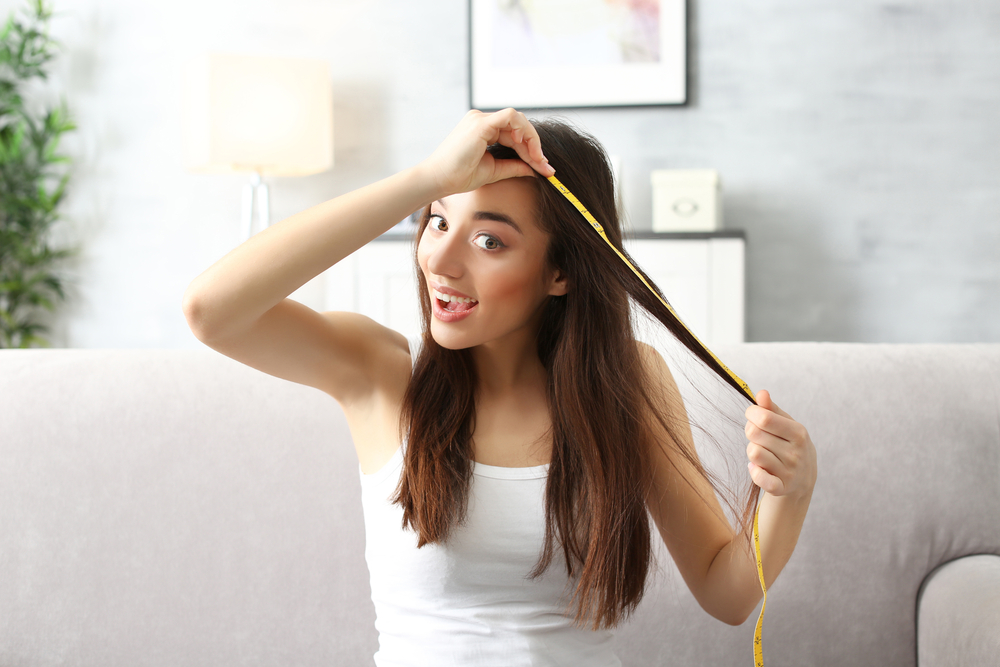
Where Can I Learn More about Vitamins and Hair Loss?
Have you been battling thinning hair? Do you think it may be an iron deficiency, or something else? Shapiro MD can help.
Proper nutrition is key to growing great hair. However, you can supplement a healthy hair diet with the right care products, including shampoos, conditioners, and other treatments developed by licensed hair experts.
Get started today with our free hair quiz to find the right formula for your situation.
Weighing The Facts: Does Creatine Cause Hair Loss?
Creatine, also called creatine monohydrate, is one of the world’s most popular exercise and dietary supplements.
Repeat scientific studies have shown that using creatine can help increase muscle mass, strength, and performance.
Despite positive reviews, creatine is widely thought to cause hair loss in men.
Although there are anecdotal accounts of men claiming to have experienced hair loss after taking creatine, there is little scientific evidence that confirms this phenomenon.
So, where does the rumor that creatine leads to hair loss come from?
In this article, we take a closer look at what creatine is, what benefits it offers, and whether it really causes hair loss.
Summary
Creatine is a natural substance found in the body. Its synthetic form—creatine monohydrate—is commonly used as a sports supplement.
Some of the benefits of taking creatine include increased muscle mass, improved strength, and a quicker recovery time after exercise.
Various anecdotal accounts and rumors have linked creatine supplementation to hair loss among men.
There is currently very little scientific evidence that confirms or denies whether taking creatine can cause hair loss.
With the right products, most types of temporary and genetic hair loss conditions are treatable.
First, What Is Creatine and How Does It Work?
Derived from the Greek word for meat, creatine is a naturally-occurring substance found in muscle cells that helps produce energy during high-intensity exercise.
Creatine produces adenosine triphosphate (ATP). This molecule plays a key role in transferring energy from the body’s cells to power the muscles. Almost like a battery, ATP delivers chemical energy to the body to power movements like walking, running, or weight lifting.
Although ATP is critical for powering the cells, it’s only stored for about eight to ten seconds during high-intensity activity.
When muscles contract while exercising, the already limited concentration of ATP in the cells gets used up at a faster rate.
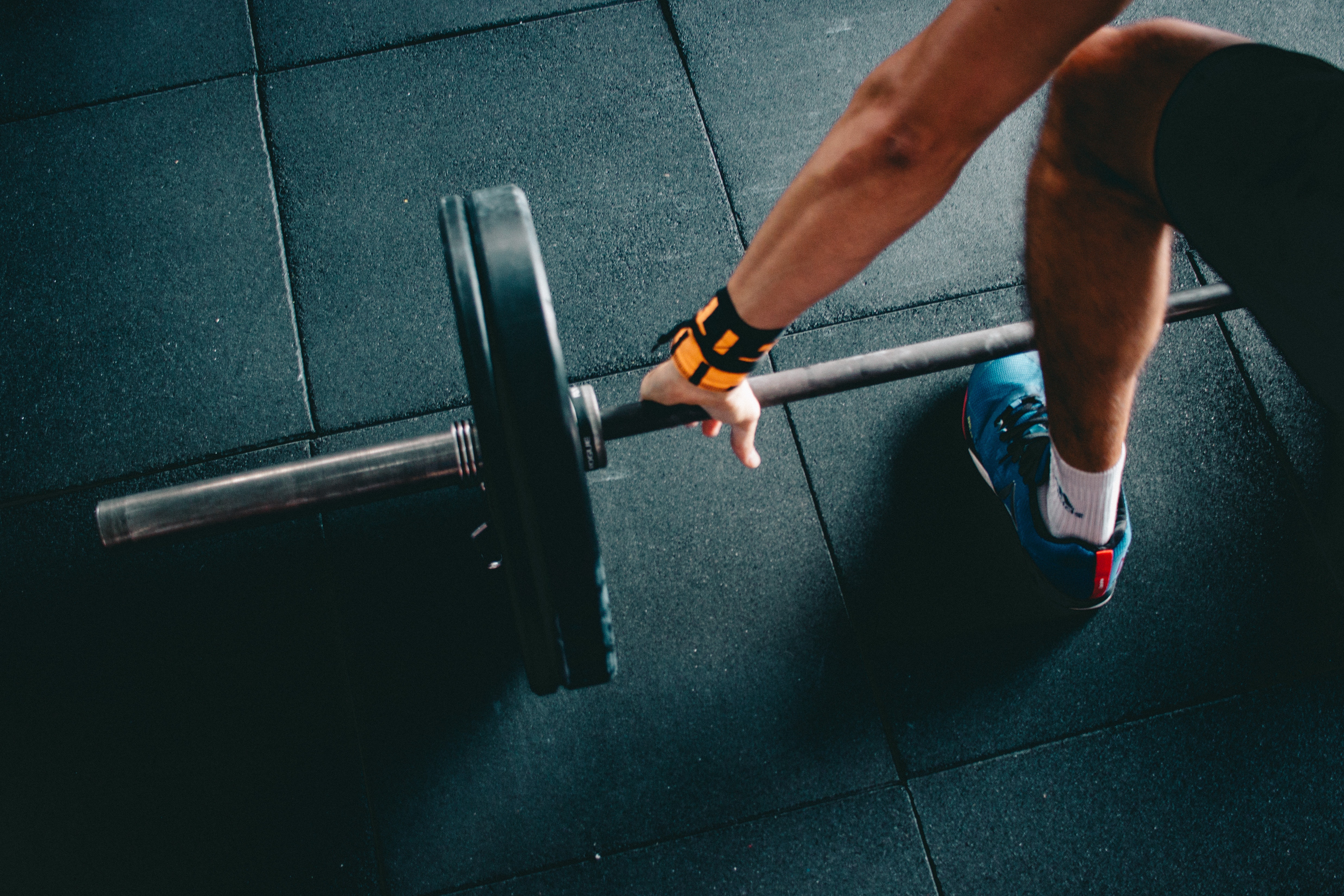
This is where creatine’s synthetic form—creatine monohydrate—comes in.
When it’s taken as a sports supplement, creatine produces new ATP in the cells during vigorous exercise.
This ensures that the muscles receive a “boost” to exercise or work for longer time periods.
Due to its performance-enhancing effect, creatine is commonly used in power and strength sports like hockey, bodybuilding, resistance training, wrestling, and football.
Research shows that if you take creatine for high-intensity exercise, it can:
- Prevent or alleviate symptoms of an injury.
- Enhance energy levels and muscle mass during exercises.
- Improve your physical performance.
- Aid faster recovery after exercising.
Creatine supplementation has also been proven to decrease muscle cramping, tightness, heat intolerance or dehydration, and muscle strains.
Is Creatine Safe to Use?
Most healthy people can take 3-5 grams of creatine per day without experiencing any negative side effects.
In fact, studies show that taking creatine supplements for up to five years doesn’t have a negative effect on your health and can continue improving your athletic performance.
Possible Side Effects of Creatine Supplements
Although side effects are rare, some people may experience:
- Excessive weight gain.
- Diarrhea.
- Headache.
- Nausea.
- Dizziness.
- Dehydration.
- Rashes.
- Stomach cramps.
People who suffer from kidney or liver disease, are under 18 years old, or are pregnant or breastfeeding are also advised to avoid creatine.
To minimize the risk of adverse reactions, make sure that you speak to your doctor before incorporating creatine into your diet.
Creatine and Hair Loss: Fact or Fiction?
Although there’s very little concrete evidence on the matter, creatine is widely believed to cause hair loss in men.
The rumors began in 2009, following a study conducted in South Africa on a group of college-aged rugby players.
As part of their creatine loading phase, one group took 25g of the sports supplement every day for a period of three weeks. This is 5g more than the recommended dosage.
The Results
At the end of the study, the researchers found that creatine may increase the conversion of testosterone to dihydrotestosterone (DHT).
This is widely known as the “hair loss hormone” and is considered one of the main causes of male pattern hair loss.
However, even though the creatine group’s DHT levels increased, they remained well within the normal range compared to the placebo group.
Not only was the study limited to a very small sample and time frame, but it also didn’t explicitly link creatine usage to hair loss.
Shortly after the study was published, the findings started circulating on social media and the hair loss creatine rumors were born.
The Link Between Creatine, DHT, and Hair Loss
Dihydrotestosterone is a natural hormone found in men and women. During puberty, much like testosterone, DHT contributes to:
- A deeper voice in men.
- Developing more body hair.
- Maintaining healthy muscle mass.
- Proper sex organ development and function.
Although women have DHT and testosterone in their bodies, they don’t have as much of it compared to men.
As DHT travels through the body, it binds to receptors on hair follicles. Over time, this shortens the hair growth cycle and may cause hair thinning or hair loss.
How Does Creatine Fit In?
As mentioned before, the study conducted in 2009 found that creatine consumption may increase DHT levels.
Given that DHT is the hormone behind male pattern baldness, it led people to believe that taking creatine interfered with the hair growth cycle.
In other words, people thought that taking creatine accelerated how DHT impacts hair follicles and could cause follicles to grow fewer, thinner, and weaker hairs—eventually leading to hair loss.
Although it’s possible that creatine can impact DHT and hair growth, there’s not enough scientific proof to confirm or explicitly negate these claims.
Similarly, people who believe the anecdotal accounts of creatine causing hair loss tend to forget that hair loss can be caused by a variety of factors. For example, men who take creatine and experience hair loss may have been genetically predisposed to balding anyway. Weight lifting and associated creatine use often occurs around the same time that hair thinning and loss begins in men who are predisposed: in their 20s and 30s.
Or, lifestyle choices and medical conditions may be to blame. Some of the other factors that can lead to hair thinning or complete hair loss include:
- A hormonal or chemical imbalance.
- Medications such as blood thinners.
- Thyroid problems.
- Autoimmune diseases brought on by infections.
- A vitamin B or iron deficiency.
- Dramatic weight loss.
How Do I Treat Thinning Hair and Rapid Hair Loss?
If you notice that your hair is thinning or falling out, there’s a good chance that you can restore hair loss with the right treatments.
Similarly, medication that causes hair loss is usually reversible, and hair tends to grow back once you stop taking the medication.
You may also notice that your hair starts thinning when you lose weight. This is temporary and your hair will generally regrow once you start increasing protein consumption.
If you have a genetic predisposition to hair loss, it may not be as easy to grow your hair back without professional help.
The good news is that there are a variety of prescription medications, medicated shampoos, and over-the-counter products that can help manage and even reverse hair loss.
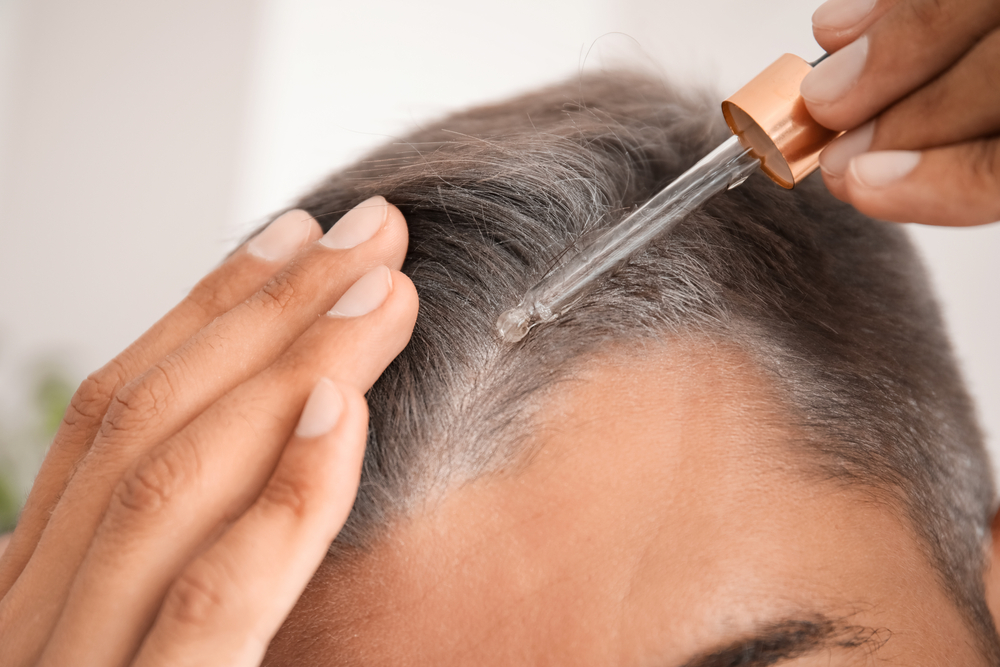
Key Ingredients to Look for In Hair Loss Treatments
Whether you’re suffering from temporary hair loss or looking to combat male pattern baldness, prescription and over-the-counter formulas both may be able to help.
Natural shampoos, conditioners and leave-in treatments—like those from Shapiro MD—contain ingredients that fight DHT and can yield great results.
Let’s take a closer look at some of these powerhouse ingredients for hair loss.
Saw Palmetto
This is a botanical extract that has been shown to regulate DHT levels and can help in reducing the appearance of thinning or breaking hair at any age.
Saw palmetto slows down the conversion of testosterone to DHT to help with thicker looking hair, reducing inflammation, and promoting healthier follicles.
Green Tea
Epigallocatechin gallate (EGCG) is a powerful green tea extract that has also shown to minimize the effects of DHT and promote hair regeneration.
By increasing blood flow to the hair follicles, green tea can also supply the scalp with more nutrients for healthier and stronger-looking hair.
Finasteride
This is an FDA-approved prescription medication that’s taken orally.
Like saw palmetto, finasteride works by inhibiting the enzyme 5-alpha reductase that converts testosterone into DHT.
Finasteride is effective for most men who use it. Taking finasteride has been shown to result in a significant improvement in hair count and thickness.
Shapiro MD offers finasteride that can be taken on its own or used in combination with 5% minoxidil for even better results.
Minoxidil
Minoxidil is an over-the-counter topical agent available in two strengths, 2% and 5%.
As the only FDA-approved hair loss treatment for both men and women, it's believed to stimulate hair growth by shortening the resting phase and speeding up the growth phase of the hair cycle.
Minoxidil also improves blood flow to the scalp, which may help to supply your hair with the nutrients it needs to grow more effectively.
Not only does minoxidil stimulate natural hair regeneration, but it also slows down the balding process in many men and women.
Tretinoin
Tretinoin is another effective ingredient in Shapiro MD’s custom prescription treatments.
Also known as retinoic acid or Retin-A, tretinoin is a vitamin A derivative that was developed in the 1950s to improve the appearance of aging skin and to combat acne.
It has also shown promise for hair regrowth in many clinical studies.
In a study on male pattern baldness, 56 participants were given tretinoin and minoxidil. The researchers looked at tretinoin taken alone and with minoxidil.
A year later, it was found that the combination of tretinoin and minoxidil resulted in the regrowth of permanent hair in 66% of the subjects. Of the subjects who took tretinoin on its own, only 58% experienced hair growth. This study proves what a powerful combination tretinoin and minoxidil can be.
Tretinoin may help with minoxidil absorption, accelerate skin cell activity, and improve collagen production throughout the skin to promote greater hair growth.
Regrow Stronger, Healthier Hair Today
Regardless of whether your hair thinning is temporary or if you’d like to explore hair loss treatments, Shapiro MD can help.
From shampoos and conditioners to oral supplements and hair growth kits, we offer a variety of OTC and prescription solutions that are formulated to repair and regrow hair.
The best part of all? You can access our proven hair loss prevention tools and personalized hair loss treatments from the comfort of home.
To learn more, read the reviews from satisfied customers who’ve successfully regrown their hair using Shapiro MD formulas.
Then, shop the whole selection of natural- and FDA-approved hair loss products today.
Meet the Expert: Dr. Steven Shapiro
When it comes to restoring (and maintaining) a full, healthy head of hair, dermatologist and Shapiro MD co-founder Dr. Steven Shapiro believes in keeping things simple. That was a core goal when he set out to make a natural and easy-to-use hair loss solution for patients who came into his dermatology office 20 years ago.
“People needed something they could use topically and as part of their normal routine,” says Shapiro. “It’s been rewarding to develop products that make hair look fuller and thicker without making it this big complicated process.”
One could argue that emphasis on simplicity is what made Shapiro MD the success it is today.
Shapiro MD started with a single cleansing shampoo (Shapiro MD Shampoo) formulated with natural ingredients known for their ability to either reduce hair loss-triggering hormones like dihydrotestosterone (DHT), and/or stimulate dormant hair follicles.
This hair loss formulation and its companion conditioner (Shapiro MD Conditioner), which came a few years later, were made specifically so that Dr. Shapiro’s clinical dermatology patients had something natural they could use easily and without having to change their normal bathing or beauty habits.
But how did he settle on the formula thousands of patients know and love today?
In the early ‘80s, patients had few good or easy-to-use options when it came to preventing or fighting hair loss. Topical minoxidil was still a few years away (approved by the FDA for balding men in 1988 as Rogaine®), and patients were essentially limited to hair transplants.
Recognizing patients’ frustration, he and partner/co-founder Dr. Michael Borenstein began working on formulas that could help patients maintain and restore the look of full, healthy hair naturally.
Does Shapiro MD Work?
Shapiro had read about native people of Central and South America who regularly ingested saw palmetto berries and had seen a variety of health impacts: some good and some bad.
Based on those findings, he and his team recognized that saw palmetto berry extract was like a naturally-occurring version of finasteride, the only oral medication approved by the FDA for the treatment of hair loss. Finasteride works by inhibiting the enzyme, 5-alpha-reductase, the enzyme that converts testosterone into dihydrotestosterone (DHT). DHT is considered the primary culprit for most men and women with hair loss. The saw palmetto plant is a recognized inhibitor of the 5-A-R enzyme.
In exploring saw palmetto berry extract’s use as a topical DHT-fighting ingredient, Shapiro and Borenstein settled on a unique (and now twice-patented) blend of saw palmetto extract, green tea, and caffeine for the patients in their clinical practice.
According to published research, all three ingredients have been shown to fight the effects of dihydrotestosterone, along with mechanisms for stimulating the stem cells that control hair follicles. \
“They work very well,” Shapiro said of these botanically-infused formulas. “We’re converting immature hairs into mature hairs and making hair thicker and fuller that way.” \
Of course, the results speak for themselves. Dr. Shapiro recalls working with a male patient who was so bald, he no longer needed a barber. He told this gentleman to start using his shampoo, and – whenever possible – to leave it on his damp scalp for 20 minutes.
“Before he knew it, he’d grown enough hair to get his first haircut in three years,” the doctor says. “Then, he had enough hair where he could color his hair. People thought he’d had a hair transplant, and it was just our shampoo.”
Shapiro says this early patient was one of just many who have benefitted from these advanced formulas.
Today, Shapiro MD is a leader in telehealth, a form of healthcare where patients and doctors communicate online or by phone. On top of its storied original formulations, the dermatology provider now offers a wide range of prescription and nonprescription hair loss formulas to meet patients' unique needs.
These can include minoxidil, finasteride (for men), and custom compounded prescriptions containing a variety of growth-promoting ingredients. Depending on the patients’ specific needs, these formulations may include tretinoin, latanoprost, and higher concentrations of minoxidil, for example, all frequently used in clinical practice but not available without a licensed clinician’s help.
Shapiro MD is all about creating a one-stop opportunity to treat each patient just like an in-person dermatologist would, says Shapiro.
Who is Dr. Steven Shapiro?
Despite the brand’s growth, Shapiro remains intimately involved while maintaining a full schedule at his private practice – a testament to that strong work ethic that has taken Shapiro MD to where it is today. Shapiro received his degree from UMDNJ New Jersey Medical School and completed his residency at the University of Miami School of Medicine. He’s now a faculty member at the Miami school, where he’s taught surgery for 26 years, and he serves as a physician at Gardens Dermatology & Cosmetic Surgery Center in Palm Beach Gardens, Florida. He also serves as team dermatologist for the St. Louis Cardinals.
His goal in every venture is to reflect a holistic, integrative approach to treating hair loss. That original shampoo for which Shapiro MD has become so well-known is still made with those same vetted, natural ingredients. And, these formulas complement other effective medications commonly used by men and women today, like minoxidil, which Shapiro MD includes in their most popular Regrowth Kits, and the oral medication finasteride.
But no matter who’s using these formulas or which formulations they’re working with, the key to hair growth success is to be patient and remember that you’re playing the long game, says Shapiro.
“People ask how long it takes for Shapiro MD to work, and the answer is it depends on your formula. These are not the types of products you put on at night then run to see what’s in the mirror the next day,” Shapiro says. “Hair takes 6 to 9 months to grow. When you try a hair product, you have to use it for 6 months or more before you see maximum results.”
Consistency is critically important too, he says. “If it's a daily treatment and you only do it once a week, you probably won’t get the full benefits. Just like if you only brush your teeth once a week, you may not get the full benefits of toothpaste,” he laughs.
“If I can give one piece of advice to every person suffering from hair loss, it’s to look for safe, proven, and quality ingredients and then stick with them,” he continues.
The research supports Shapiro’s claim. Hair loss treatments of all types––even the most potent of prescription medications––consistently require months of continued use for best results. And, many of them demonstrate continued improvement at two, three, and even five years of treatment.
Most people with thinning or balding can see noticeable improvements with continued use, it’s just a matter of time, says Shapiro.
“I’m thankful for every patient that’s trusted us with their hair,” says Shapiro of the Shapiro MD platform. “I’m glad to be able to help so many people, and it’s been incredible to see people excited about their results even far from our clinics here in South Florida.”
Click here to see the full Shapiro MD lineup and learn more.
What’s In The Best Shampoos for Hair Loss?
If you’re struggling with a receding hairline, baldness or thinning hair, you’re certainly not alone.
Twenty-five percent of American men notice hair loss by the age of 21, according to the American Hair Loss Association, and 85% experience it by the time they reach 50. Women are also affected and account for 40% of Americans experiencing hair loss.
Fortunately, prescription and non-prescription medications can help. Topical minoxidil is a common treatment for men and women, and many men take finasteride, the only pill approved by the FDA for male pattern hair loss.
Of course, those are only a small sampling of the options available to individuals with thinning hair. In fact, it’s become extremely common to use fullness-boosting shampoos and conditioners to compliment these medications, and the right hair loss shampoos and conditioners pair well with these medications to promote that healthier head of hair. After all, you wash your hair anyway; why not use a formula that can help prevent and reverse the appearance of hair loss?
Here are recommendations on ingredients and reasons to check out shampoos for hair loss.
What Causes Hair Loss?
The two most common causes of hair loss are heredity and age. It’s all in your genes.
Most men and women dealing with hair loss have a condition known as androgenic alopecia. This means their hair follicles have a genetically-predisposed sensitivity to androgen (sex) hormones like testostereone and dihydrotestosterone (DHT). DHT, a hormone present in both men and women, is largely to blame for most hair loss.
In both cases, hair follicles start to shrink and eventually stop growing new hair as DHT “acts” on them throughout your life. While this happens generally as we age, it’s really the genetic predisposition that causes the sensitivity in the first place. Hair loss can also be caused by poor circulation, inflammation, or the buildup of sebum (your skin’s natural oils) in your scalp.
Other hair loss culprits include poor nutrition, which can rob your hair of the nutrients it needs to grow. Excessive heat styling and chemical hair care products can also damage your hair and stunt healthy growth.
The good news is, early treatment can slow the rate of hair loss and even help you regrow thinning hair. In order to find the appropriate treatment, it’s important to identify the external or internal culprits that are causing you to lose hair.
Do Hair Loss Shampoos Work?
Specialty shampoos can help fight hair loss in various ways. Many include ingredients shown to fight those harmful hormones and increase blood flow in your scalp. Other ingredients moisturize and strengthen the hair shaft or clear away whatever is clogging hair follicles.
According to the Mayo Clinic, hair loss shampoos can be effective at slowing hair loss and facilitating the regrowth of hair, particularly if you start using a quality formulation at the first sign of the problem.
However, these products need to be used regularly and given sufficient time to work. To find the best shampoo for hair loss, it’s important to identify what’s causing your problem.
What Ingredients Work in Hair Loss Shampoos?
Hair loss shampoos made from natural and clinical-strength ingredients can treat inflammation on the scalp or damage to the hair follicle and help hair grow again.
Some work to block the effects of the DHT hormone, while others are intended to improve blood flow and clear debris from the scalp.
Here are the most effective ingredients found in some of the best shampoos for hair loss.
Aloe Vera
Aloe vera helps nourishes your scalp to create a more optimal environment for healthy hair growth. Its anti-inflammatory properties take care of issues at the scalp and help to normalize pH levels. The enzymes in aloe vera can stimulate growth by opening hair follicles and pores.
Argan Oil
Argan oil is a common ingredient in many haircare products, and for a good reason. It moisturizes the scalp and hair and can repair damaged strands. This makes it a particularly effective solution for hair loss caused by chemical or heat damage. Argan oil can also improve blood circulation and support more balanced hormone levels, making it easier for your scalp to regrow hair.
Biotin
Biotin is one of the B complex vitamins that does double duty for those suffering from hair loss. Not only does it strengthen your hair follicles, it also increases the elasticity of strands, preventing excessive breaking and splitting
Caffeine Extract
Just like your morning coffee gives you a jolt of energy, caffeine stimulates the scalp and hair follicles, helping new strands grow at a faster pace. It also opens up your hair follicles so they better absorb topical products to give you maximum results. If your hair loss is caused by poor circulation at the scalp, topical caffeine is your best friend. It boosts blood flow to supply the cells in your hair follicles with the nourishment they need to thrive. There’s also evidence that caffeine is effective at blocking the action of the DHT hormone. This is especially beneficial to those in the early stages of hair loss.
One 2018 study found that a topical hair loss solution containing caffeine achieved almost the same hair growth results as a 5% minoxidil over a 6-month period.
EGCG
Another effective shampoo ingredient for blocking DHT is epigallocatechin gallate, an extract from green tea. This extract, which is also known as EGCG, can block the hormone from forming and keep it from binding to hair follicles. It also helps prolong the length of your hair’s natural growth phase, and soothes your scalp with its anti-inflammatory properties.
Ketoconazole
Ketoconazole controls microflora on the scalp thanks to its strong anti-fungal and anti-inflammatory properties. This provides hair follicles the nourishment they need to grow hair again. At higher concentrations, ketoconazole is available by prescription only, but you can also find this ingredient at 1% concentrations in non-prescription shampoos.
Red Clover
The anti-inflammatory actions of red clover can help reduce irritation in your scalp and may help to prevent DHT from harming healthy hair follicles. This helps slow down hair loss while giving your hair a stronger, more voluminous appearance overall.
Rosemary
Rosemary speeds up hair growth by strengthening the roots, boosting circulation and even treating dandruff. It’s also an effective tool for relieving stress. Many users report that this pleasant fragrance relaxes them as they shampoo.
Saw Palmetto
While saw palmetto has been used in folk medicine for centuries, it’s recently become a common ingredient in specialty hair cleansers. It’s a fruit extract from berries containing antioxidants that can help eliminate inflammation. But more importantly, saw palmetto is a DHT blocking ingredient. By reducing the body's production of DHT when ingested, and preventing DHT from acting on hair follicles when applied topically, saw palmetto is a key ingredient to look for in hair loss shampoos.
But saw palmetto isn’t suitable for everyone. Physicians generally advise women who are pregnant, breast-feeding, or trying to conceive to refrain from using formulas containing saw palmetto
Tea Tree Oil
Tea tree oil is another common shampoo ingredient. Its natural antiseptic and anti-fungal properties help clean your scalp by removing buildup that may be stunting hair growth. That includes hair styling products as well as sebum and dirt.
Adding a shampoo containing one or more of these helpful ingredients to your hair care routine can help you fight that receding hairline, thinning hair, or bald spot.
At Shapiro MD, we were conscious to include DHT-fighting ingredients like saw palmetto, EGCG, and caffeine in our popular shampoo and conditioner. These formulas were created specifically for ease-of-use and effectiveness, and over 300,000 men and women have used Shapiro MD Shampoo and Conditioner to fight visible hair loss and achieve fuller-looking hair. We also help men and women get prescription and clinical-grade formulations from the comfort of home through our online consultation process. It’s fast, easy, and affordable. Start your hair regrowth journey today by clicking here.
Sources:
https://www.americanhairloss.org/men_hair_loss/introduction.html
https://www.americanhairloss.org/women_hair_loss/introduction.html
https://www.aad.org/public/diseases/hair-loss/causes/18-causes
https://main.shapiromd.com/blogs/how%20to%20block%20dht
https://newsnetwork.mayoclinic.org/discussion/mayo-clinic-q-and-a-treating-hair-loss/
https://www.healthline.com/health/ketoconazole-shampoos
https://www.ncbi.nlm.nih.gov/pmc/articles/PMC5804833/
https://www.ncbi.nlm.nih.gov/pmc/articles/PMC3262531/
https://softerhair.com/natural-shampoos-that-support-hair-growth/
9 Simple Remedies to Stop Hair Loss
Running your hand through your hair and finding a fistful of loose strands can be a downright frightening thing.
In many cases though, you have the power to combat the problem and begin growing new and healthier hair.
Here are some simple tips on how to stop hair loss and support healthy hair & growth.
1. Consume More Protein, Iron and Omega-3s
Healthy hair growth is dependent on getting adequate protein and Omega-3s through your diet. Protein is essential to hair growth since hair is primarily made from the protein keratin. If your body isn’t getting enough protein, it can cut back the protein supply to your hair, and you may experience hair loss. Eggs, salmon, nuts and meat are excellent sources of protein to incorporate into your diet.
Hair loss due to an iron deficiency is common since iron aids in the production of hemoglobin, which is crucial to growth. This mineral is naturally occurring in red meat, poultry and fish, so vegetarians and vegans especially must be careful to get enough and supplement if diet cannot naturally deliver the iron needed.
Omega-3s fatty acids are vital to many bodily processes, including hair growth, but the body can’t create them so they must be absorbed through diet. These are naturally occurring in some fatty fish and other seafood but can be difficult to get a sufficient amount of naturally, so many people supplement with fish oil.
Studies have shown those who take fish oil supplements have increased hair growth and healthier hair.
2. Add More Vitamins
A vitamin-rich diet is a strong defense against hair loss. They should be absorbed naturally from food in the diet when possible, but supplements also work.
Vitamin A plays an important part in cell growth, including hair. It also helps produce sebum, an oily substance that keeps the scalp moisturized and helps hair stay healthy. Sweet potatoes, pumpkins and spinach are all great sources of beta-carotene, which turns into vitamin A.
The B-vitamins also are vital to hair growth, particularly biotin which is often used as part of a hair-loss treatment plan. Those with a deficiency of B12 can experience hair loss. B-vitamins can be naturally found in many foods, including whole grains, leafy greens and animal-based foods such as meat and dairy.
Vitamin C helps your body absorb iron which is necessary for hair growth. It also is vital to the body’s production of collagen which is essential to hair structure. Citrus fruits, peppers and strawberries are good sources of vitamin C.
Vitamin D deficiencies have been linked to alopecia, and research has shown that vitamin D helps create new hair follicles. Many people suffer from a lack of vitamin D and it can be difficult to get the necessary amount through diet alone. It can be found, though, in some fish, certain mushrooms and fortified dairy products.
Studies have shown that vitamin E plays a role in increasing hair growth in those with hair loss. Sunflower and soybean oil, almonds, peanuts and peanut butter and greens are excellent sources of vitamin E.
3. Massage Your Scalp
One of the simplest things you can do to stimulate hair growth is a daily scalp massage. Research shows that scalp massages increase hair thickness and improve alopecia. This encourages the follicles to grow healthier and thicker hair. Massages also help with promoting blood circulation to the area.
Scalp massage can be done simply with fingers or with special tools and brushes. You can even hire a professional masseuse to perform a scalp massage.
If you're using your hands, you can do your daily massage whenever you like, including in the shower. Simply move your fingertips in circles over your scalp using medium pressure. Work from front to back or side to side, making sure to cover the entirety of yourself. Do this for about five minutes each time, multiple times a day.
There are many scalp massagers available on the market if you choose to go that route too. Some dermatologists believe a scalp massager is more effective, but there are those who find these tools uncomfortable and prefer the fingertip method.
4. Use Essential Oils
Many people swear by essential oils to promote hair growth. Both lavender and peppermint have been shown to help hair growth in animal studies. Use this easy essential oil treatment weekly to stimulate your scalp:
Mix a drop or two of your oil of choice into what's called a carrier oil, such as melted coconut oil. Then, take that mixture and gently massage it into your scalp, using your fingertips to massage as you go. Once it’s thoroughly saturated, cover your hair in a shower cap or towel and leave it for up to an hour. Rinse it out, shampooing your hair and styling it as usual.
5. Brush Gently
Hair loss can be caused by over-brushing, using the wrong brush or brushing at the wrong time. It’s essential that you are gently brushing with the right brush.
Paddle brushes are good for most hair types and situations, with sturdier bristles available for thicker and more textured hair. Round brushes are perfect for blowouts and come in a variety of sizes and with many bristle options. Loop brushes are ideal for those with hair extensions, as the loop style of the bristle makes brushing extensions a breeze with no damage.
Hair is most prone to breaking when it is wet, so it's important to choose a wet-hair-friendly tool when brushing it. Your best options are a strong wide-toothed comb or a detangling brush made specifically for wet hair use. Both of these options will limit the damage and minimize hair loss.
6. Minimize Heat Tool Use
Hairdryers, curling irons, and straighteners may seem like a godsend when it comes to hair styling, and they all definitely have their benefits. One of their consequences, though, is dry, damaged hair.
It can be quite the cycle: You dry and style your hair using heat, the heat damages the hair making it more brittle and frizzy, so you use more heat styling to tame it. This process only makes it more likely to break off or fall out!
Luckily, cutting back on the use of heat tools can have significant positive effects. Let your hair dry naturally whenever you can, giving it a break from the heat of the blow dryer. Choose a brush specially made for speedy blow drying so that your hair spends less time under direct heat. Use tools like straighteners and curling irons sparingly, and apply hair masks and treatments to help minimize the damage from heat.
7. Avoid Tight Hairstyles
Some forms of hair loss are caused by the repetitive stress on hair caused by pulling and stretching it into tight hairstyles such as elaborate braids or tight ponytails. Traction alopecia is a prominent kind of hair loss that can often be reversed by stopping the frequent practice of hairstyles that put extra strain on your scalp and hair follicles. Use scrunchies or soft materials to tie up your hair, and keep the style loose and low on your scalp when possible.
8. Don’t Overprocess Hair
While using chemicals to dye and style hair in moderation may not cause extensive damage, using them frequently can cause hair to become especially brittle and prone to breakage. Especially if you are using bleach, you need to make sure not to process your hair too often as the damage from it can be significant and irreversible with hair loss a very real possible consequence. Thankfully, taking a break between dyeing or processing can help to minimize the chance of hair loss.
9. Reduce Stress
Long-term or incidental stress can both have a serious impact on hair health. If you're experiencing high stress in your life, it can cause your hair to go into a phase where it won’t produce new hair! Consider finding ways to limit or cope with stress by eliminating unnecessary stressors in your life and practicing positive stress management tools like meditation. If you can cut down on your stress, your hair may respond to produce new hair again.
Hair loss can be scary, but it doesn't have to be permanent. Shapiro MD's hair growth experts are here to help, with custom prescriptions and easy-to-use FDA-approved options like minoxidil, all available online. Click here to start out unique hair quiz – and get the right plan for you – today.
Sources
https://food.ndtv.com/beauty/iron-and-protein-getting-to-the-root-of-hair-loss-768613
https://www.onegoodthingbyjillee.com/ways-to-reduce-hair-loss/
https://www.luxyhair.com/blogs/hair-blog/your-ultimate-hairbrush-guide
Our articles
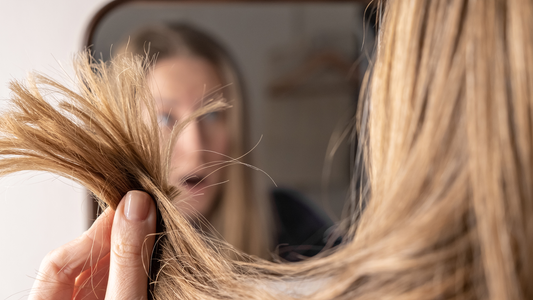
How Common Is Hair Loss for Women, and What Can...
If you’re experiencing hair loss, you may think your situation is unusual. However, female hair loss is not as uncommon as you might think. In fact, the American Hair Loss Association...
How Common Is Hair Loss for Women, and What Can...
If you’re experiencing hair loss, you may think your situation is unusual. However, female hair loss is not as uncommon as you might think. In fact, the American Hair Loss Association...
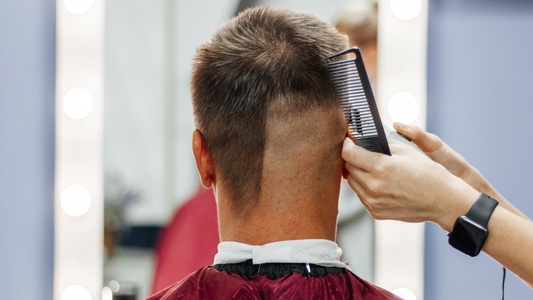
Haircuts For Men Who Suffer From Hair Loss
The key to good haircuts for men who suffer from hair loss is to embrace your look. No matter which of these haircuts you decide to get, you just have...
Haircuts For Men Who Suffer From Hair Loss
The key to good haircuts for men who suffer from hair loss is to embrace your look. No matter which of these haircuts you decide to get, you just have...

